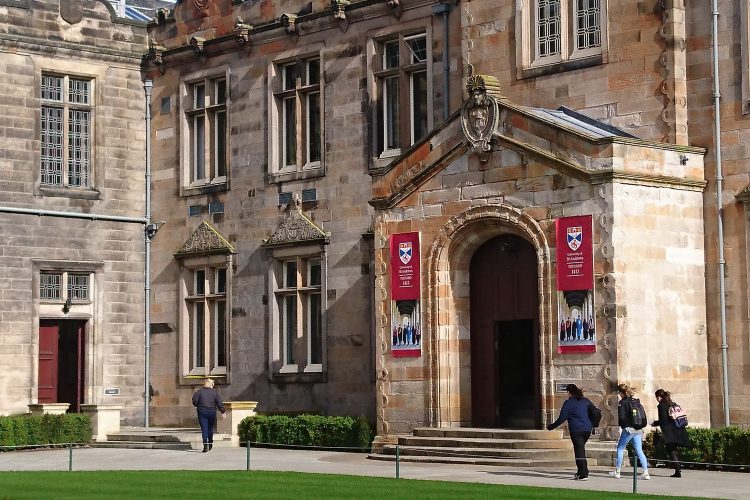While the University of Cambridge retains first place, St Andrews has edged Oxford into second place after several years of being third in the Guardian’s 2020 league table. Other Scottish rankings include Glasgow 14th, Edinburgh 25th, Dundee 29th, Aberdeen 34th, Stirling 40th and Strathclyde 53rd.
As reported by QV earlier this year, St Andrews had the dubious distinction of ranking second to the other Oxbridge twin, in a league table ranking universities according to the proportion of privately educated students admitted.
Sally Mapstone, St Andrews Principal, said its success was thanks to the university’s students, academic and professional services staff working alongside alumni and supporters.
“For a small Scottish university to be competing among the very best universities in the United Kingdom says much for the strengths of research-led teaching and student experience across the sector north of the border,” Mapstone said. “This ranking bears contemplation simply because it describes a point in time on St Andrews’s journey, a signpost of the advances we have made in the measures by which the Guardian judges the quality of an institution – and where we might go from here.”
Matt Hiely-Rayner, who compiled the guide, said St Andrews’s rise was due in part to high levels of contentment among its students: more than 93% said they were satisfied or very satisfied with the quality of teaching. While all three universities at the top have excellent student-staff ratios and the most demanding entry standards in the sector, St Andrews sets itself apart from the others with the most satisfied students,” Hiely-Rayner said. He continued “St Andrews tends to spend less on its students than Oxford and Cambridge. But the key reasons for its entry into the top two this year were its extremely high levels of student satisfaction, and an improvement in the proportion of its students who find graduate-level work or enter further study.”
In contrast, Oxford did relatively poorly this year in terms of graduate outcomes and employment, with the university ranked just 24th nationally for career prospects. Oxford continued to shine in the quality of its traditional academic disciplines, including maths and medicine, while St Andrews produced strong results in sciences and economics as well as philosophy.
The Guardian University Guide is in its 20th year of publication. The rankings are based on a complex compilation of data related to institutional performance and student outcomes in each subject offered by a UK university. However, unlike some other university league tables, it places heavy emphasis on student satisfaction but takes no account of research performance or research reputation.
Notwithstanding their ancient pedigrees, Cambridge is top in computer science ahead of St Andrews, with the University of Edinburgh rising from 27th to sixth thanks to its investment in teaching quality.
Universities that demonstrate they can markedly improve the performance of their students are rewarded in the Guardian’s rankings. The University of Plymouth rose from 22nd to fourth in mathematics by bringing in students with lower grades and using good teaching to boost their results dramatically over the course of their degree.
Click here for the full Guardian university rankings
For more on the different criteria used in rankings by different publications, see the Editors Note @ https://standrewsqv.org.uk/2019/05/st-andrews-1st-for-student-satisfaction-again/
